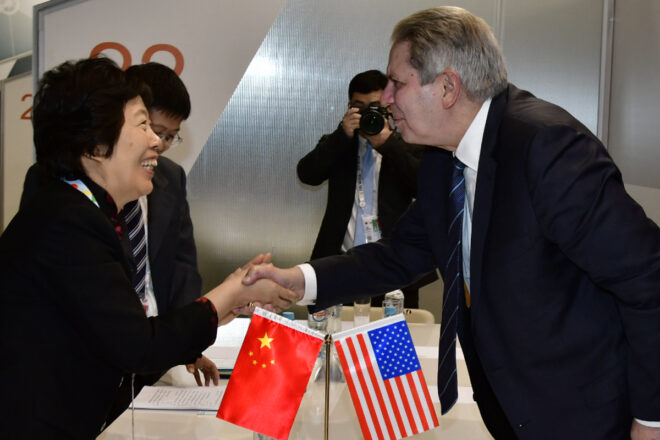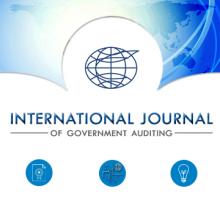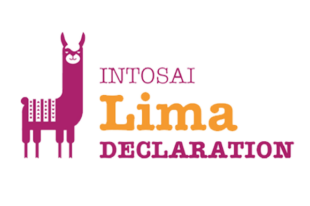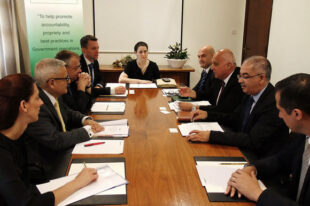Collaboration, Exchange Between CNAO and GAO Contribute to Enhanced Audit Capacity

[cmsmasters_row data_padding_bottom_mobile_v=”0″ data_padding_top_mobile_v=”0″ data_padding_bottom_mobile_h=”0″ data_padding_top_mobile_h=”0″ data_padding_bottom_tablet=”0″ data_padding_top_tablet=”0″ data_padding_bottom_laptop=”0″ data_padding_top_laptop=”0″ data_padding_bottom=”50″ data_padding_top=”0″ data_bg_parallax_ratio=”0.5″ data_bg_size=”cover” data_bg_attachment=”scroll” data_bg_repeat=”no-repeat” data_bg_position=”top center” data_color=”default” data_bot_style=”default” data_top_style=”default” data_padding_right=”3″ data_padding_left=”3″ data_width=”boxed” data_shortcode_id=”73s5xw8yqr”][cmsmasters_column data_width=”1/1″ data_animation_delay=”0″ data_border_style=”default” data_bg_size=”cover” data_bg_attachment=”scroll” data_bg_repeat=”no-repeat” data_bg_position=”top center” data_shortcode_id=”ysmj85nq66″][cmsmasters_gallery shortcode_id=”l65xtb3ya” layout=”slider” image_size_slider=”full” slider_effect=”slide” slider_autoplay=”true” slider_slideshow_speed=”7″ slider_animation_speed=”600″ slider_pause_on_hover=”true” slider_rewind=”true” slider_rewind_speed=”1000″ slider_nav_control=”true” animation_delay=”0″]20040|http://intosaijournal.org/wp-content/uploads/2020/01/Hu-and-Dodaro-Shake-Hands-150×150.jpg,20037|http://intosaijournal.org/wp-content/uploads/2020/01/CNAO-Delegation-150×150.jpg,20038|http://intosaijournal.org/wp-content/uploads/2020/01/CNAO-Delegation_2-150×150.jpg,20039|http://intosaijournal.org/wp-content/uploads/2020/01/CNAO-GAO-Meeting-INCOSAI-150×150.jpg[/cmsmasters_gallery][/cmsmasters_column][/cmsmasters_row][cmsmasters_row][cmsmasters_column data_width=”1/1″][cmsmasters_text]
Committed to collaborative partnerships, the heads of the National Audit Office of the People’s Republic of China (CNAO) and the U.S. Government Accountability Office (GAO) signed a bilateral Memorandum of Understanding (MOU) in 2012 to facilitate cooperation and information exchange. Since then, both Supreme Audit Institutions (SAIs) have undertaken joint efforts leveraging experiences and expertise to develop effective knowledge sharing opportunities for the global accountability community.
Under the MOU, the CNAO and GAO have held a series of international seminars on important topics, such as auditing financial regulatory policy implementation; using foresight and data analytics in auditing; implementing performance audits of programs that promote citizen well-being and financial security; and auditing impacts associated with aging populations.
Designed to facilitate dialogue, share auditing perspectives and enrich engagement, these seminars have included experts representing various SAIs and organizations around the world, all of whom have meaningfully contributed to the dynamic discussions.
The outcomes, which include expanding the Working Group on Financial Modernization and Regulatory Reform and developing the concept of the International Organization of Supreme Audit Institutions (INTOSAI) Working Group on Big Data (WGBD), demonstrate the benefits of the CNAO-GAO partnership across the INTOSAI community.
Co-leading the INTOSAI Working Group on Big Data
The WGBD was approved and endorsed at the 2016 INTOSAI Congress in Abu Dhabi, United Arab Emirates, with CNAO and GAO serving as Chair and Vice-Chair respectively. In the realm of big data and big data audit, the WGBD facilitates exchanging information and experience among SAIs, which, in turn, better equips SAIs to contribute to good governance and sustainable development—nationally and globally.
The WGBD, comprised of 29 members and three observers, emphasizes a wide range of big data audit topics in research projects, annual meetings and seminars. In 2018, the WGBD released a collection of global big data audit cases, “Global Practices: Big Data Audit for Sustainable Development,” that reflects how exchanges have strengthened cooperation, raised awareness and driven progress in big data audit.
Other WGBD efforts include:
- Summarizing and promoting big data audit practices and experience;
- Releasing big data audit guidelines and research reports;
- Supporting the professional development of big data auditors;
- Enhancing bilateral and multilateral cooperation between (and among) SAIs;
- Facilitating big data knowledge sharing activities; and
- Providing practical suggestions to address the introduction or improvement of laws; short-, medium- and long-term big data audit plans consistent with national conditions; and organization and management models suitable for big data audits.
Joint Research Project
Most recently, the CNAO and GAO drafted complementary research papers on the histories and evolution of government audit in China and the United States. Ms. Hu Zejun, CNAO Auditor General, and Mr. Gene L. Dodaro, U.S. Comptroller General, met in July 2019 to exchange draft papers, which will be finalized soon.
Common themes from the research papers include:
Major Impacts on National Governments
The work of both SAIs has led to significant long-term accomplishments and benefits. CNAO achievements in government audit include improving fiscal management and government performance; promoting implementation of major national programs; and fighting corruption while promoting open and transparent governance. Additionally, from 2013 to 2017, the CNAO submitted more than 1.2 million audit reports; issued more than 50,000 audit result announcements; and deployed 238,000 provisions to improve legislation. In 2018, the CNAO, through its audit work, yielded $71.4 billion in financial benefits.
Since 2000, GAO’s work has resulted in over $1 trillion in financial benefits and more than 23,000 program and operational benefits that helped to change laws, improve the economy and efficiency of government programs and enhance public safety, among other things. In fiscal year 2019 alone, GAO’s work yielded $214.7 billion in financial benefits—a return of about $338 for every dollar invested in GAO.
Evolving to Meet National Circumstances
After the founding of the People’s Republic of China in 1949, audit institutions were set up in fiscal departments within central and local governments. The 1982 constitution established the government audit system in China, and, as China’s economic system transformed from a planned economy to a socialist market economy, government audit has increasingly focused on the authenticity and legitimacy of audited subjects and efforts to improve management and efficiency.
In its early years, GAO primarily investigated federal expenditures. Over the decades, its work evolved to focus primarily on performance audits examining government programs and operations, enabling GAO to have the greatest impact in enhancing government performance and accountability. Critical to GAO’s success has been an emphasis on creating a diverse and multi-disciplinary workforce that enhances the sophistication and usefulness of its work.
Advanced Audit Methods and Rigorous Quality Assurance
To enhance audit quality, the CNAO takes steps to: clearly define audit quality control goals, factors and principles; establish and constantly improve the audit quality control system; optimize quality control measures; and combine quality control with accountability. The CNAO has a Chief Quality Officer as a member of top management, and the quality review function was further enhanced to become a separate unit in 2018.
GAO has a disciplined and effective quality control system for work conducted under the U.S. Generally Accepted Government Auditing Standards (Yellow Book), which, together with the GAO policies applied in conducting audits, is consistent with the Fundamental Auditing Principles of the International Standards of Supreme Audit Institutions. The Quality Assurance Framework provides reasonable assurance that GAO’s work is professional, independent (in fact and appearance) and objectively designed; evidence is sufficient and appropriate; conclusions are supported; products are fair and balanced; and recommendations are sound.
Preparing for the Future
The CNAO takes a future-oriented approach in its work and promotes security and improves citizen livelihood by organizing and carrying out audits on pension, medical insurance funds and government-subsidized housing projects; revealing problems in pension granting, sustainable operation and drug price control; and identifying issues with government-subsidized housing allocation and utilization. The CNAO upholds the importance of new technology and has established a comprehensive training program on Information and Communication Technologies for all government auditors.
Expanding its work on cutting-edge science and technology developments, GAO established its Science, Technology Assessment, and Analytics (STAA) team in January 2019. The STAA team will conduct technology assessments; audit science and technology programs; compile and use best practices in engineering sciences; and establish an audit innovation lab to explore new advanced analytic capabilities and emerging technologies that will affect future audit practices. GAO also established the Center for Strategic Foresight (Center) in 2018 to identify major emerging issues, challenges and opportunities to help GAO enhance federal government efficiency and effectiveness. The Center has held meetings on topics such as the future of personal identity and privacy, future of space and related policy implications, and increasing sophistication and consequences of synthetic media.
The continued knowledge sharing efforts and collaboration between CNAO and GAO directly contribute to meaningful results for SAIs, governments, citizens and the global accountability community.
[/cmsmasters_text][/cmsmasters_column][/cmsmasters_row]





